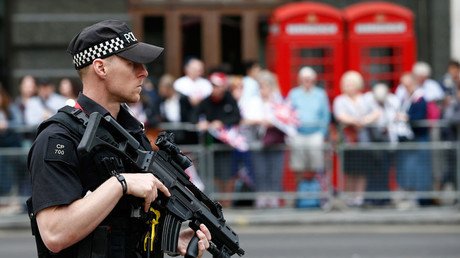London ‘thought police’ special unit to track down online trolls
A generously funded “online hate crime hub” has been set up to tackle online vitriol by identifying suspects and encouraging citizens to report them to police, but critics fear the newly-established unit might endanger freedom of speech.
The project was published by the London Mayor’s Office and is being partially funded by the Home Office, which will contribute £450,000 ($581,000) to the £1.7-million ($2.2-million) project, which is expected to run for at least two years.
The Mayor’s Office for Policing And Crime (MOPAC) came up with the idea due to the “increasing role that online hate played in targeting individuals and communities.” Disguised under a “veil of anonymity” on social media, online abusers are hard for conventional police forces to find, as they lack the necessary skills and equipment.
“By establishing this unit, we are sending a strong message to those who use online forums to spread hate that their actions will not be tolerated,” Metropolitan police said in a statement, as cited by The Business Standard.
The newly-established cybercrime unit will consist of five trained detectives, aided by volunteers who will be urged to report both “criminal and non-criminal incidents.” Under the auspices of a joint partnership program run by police and social media services, the volunteers will learn how to use “online tools” to respond to hate crimes they encounter on the web.
While the authors of the project argue that it will provide police with “additional intelligence gathering opportunities,” not everybody seems to be enthusiastic about the idea, as the prospect of a Twitter joke or an “insensitive” Facebook post landing someone in jail is disturbing to those who see the internet as a free speech zone.
“There’s a risk of online vigilantism, where people who are offended by the least thing will have a license to report it to the police,” said Andrew Allison, head of campaigns for The Freedom Association, a libertarian influence group that fights against abuse of individual freedoms, as cited by the Daily Mail.
While online hate speech presents a complex problem, having police officers take up the role of “chatroom moderators” doesn’t seem like the best way to tackle it to many people. Liberal Democrat leader Tim Farron argues that this approach will likely result in “undermining our very precious freedom of speech.”
“We want more police on the street, not thought police,” he told the outlet.
Following Britain’s EU referendum vote in favor of leaving the block, police registered a spike in hate crimes, mostly directed at migrants and refugees. According to statistics, there were 42 percent more reports of hate crimes in the second half of June than there were over the same time last year.
The hashtag #PostRefRacism was even coined to highlight the rising tensions in British society. However, despite all of the media attention, the police have failed to address the problem directly.
Only 27 percent of hate crime reports resulted in suspects being charged, summoned, or cautioned in 2015-2016, according to police data obtained by The Bureau of Investigative Journalism (TBIJ) through a Freedom of Information Act.















